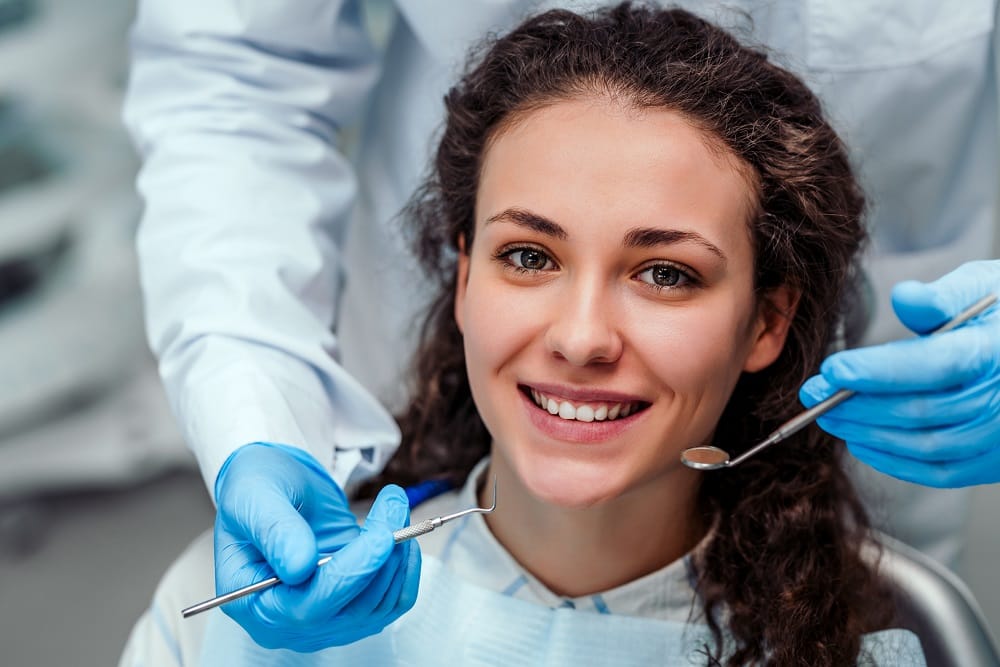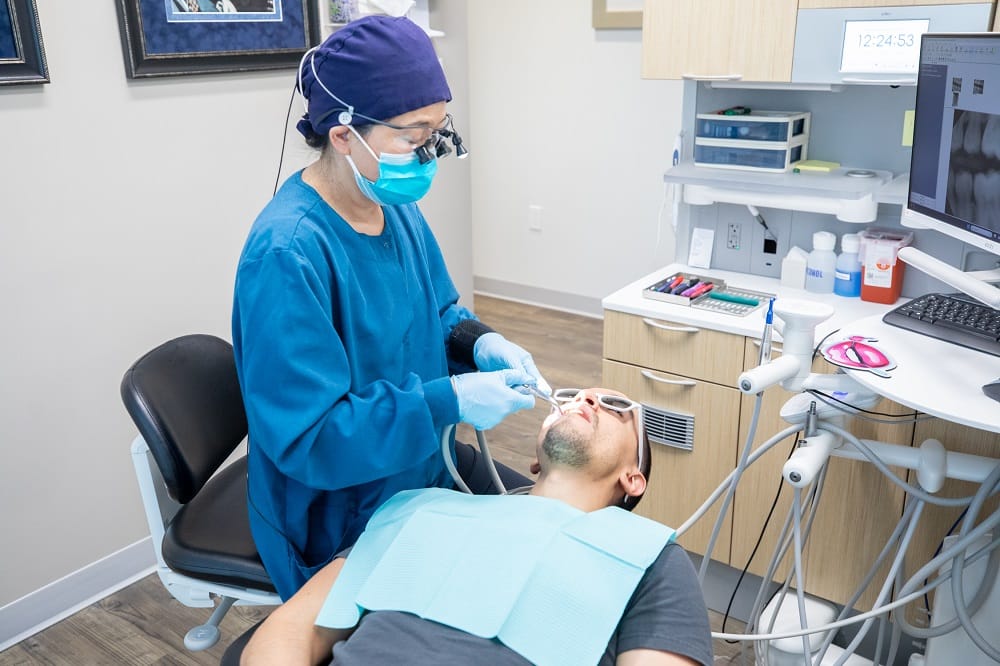Obstructive Sleep Apnea (OSA) is a type of sleeping disorder where soft tissues collapse in the back of your throat, sealing off your airway and blocking oxygen flow to your body.
If you have enlarged tonsils or your tongue tends to slip backward while you’re sleeping, it can further aggravate the issue without you even realizing it.
How can an oral appliance help?
Oral appliances are an effective way to manage obstructive sleep apnea. These FDA-approved medical devices position your lower jaw in a manner that prevents your tongue from slipping back and soft tissues from sealing off your airway.
This holistic approach naturally improves airflow to your lungs and may even eliminate the need for a CPAP machine.



